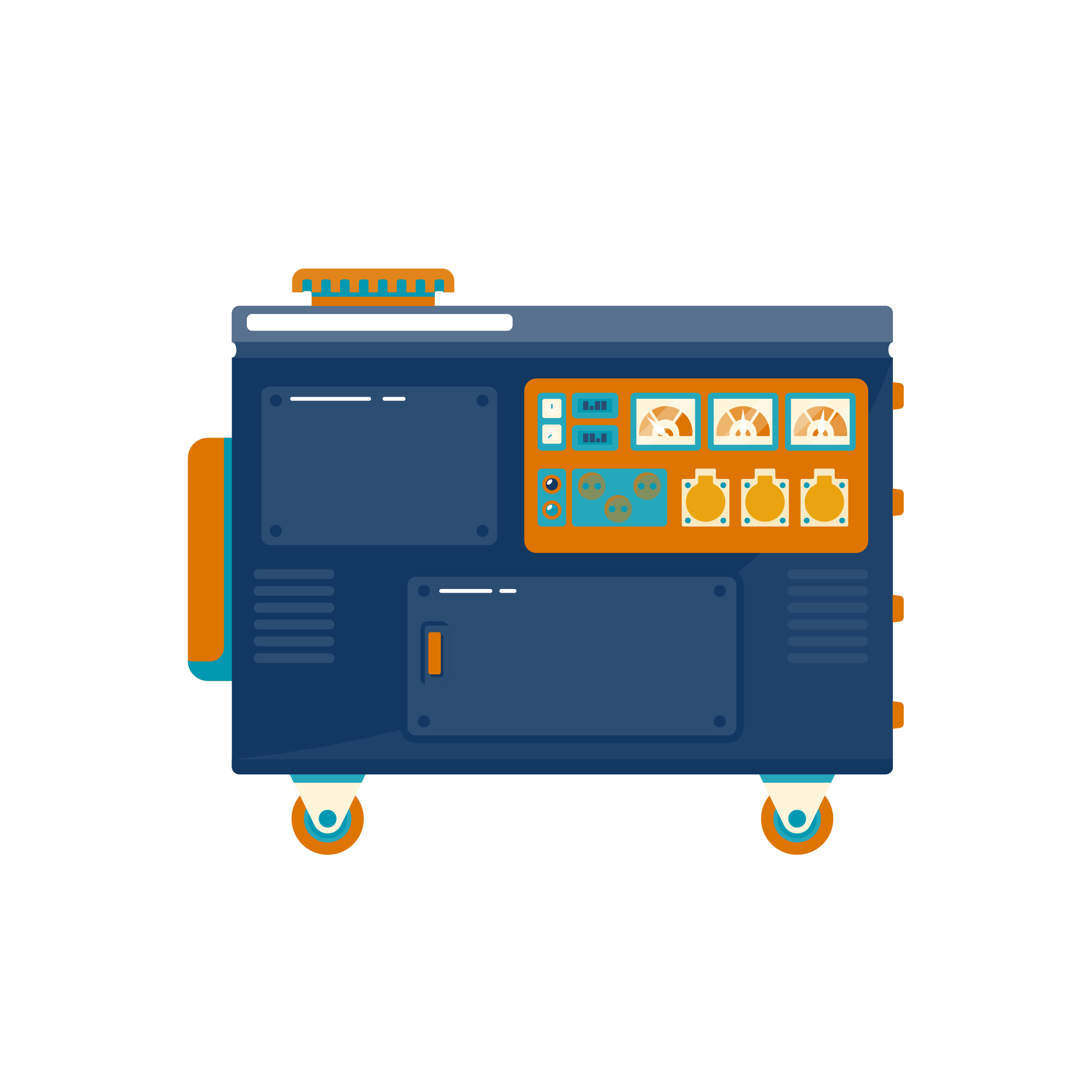Emergency Diesel Generator (GenSet)
Emergency Diesel Generator (GenSet)
- 2024-01-31
- 8:0
- In person/online
Course description
Introduction This Diesel Engine training course is a comprehensive program that covers basic diesel engine operation including the function, operation and maintenance of the air intake system, fuel system, exhaust system, lubricating oil system, and cooling system. Proper maintenance inspections allow participants to catch problems before they become bigger, more expensive ones. This training course discusses the type of maintenance programs participants will encounter, and the types of routine inspections participants will be expected to carry out. Also, this course includes diesel engine operation, including how the diesel cycle differs from other types of engine cycles. The training course also introduces several major diesel engine components and moves on to cover shop safety and tools. Moreover, this Diesel Engine training course will cover all aspects of a modern diesel engine and associated systems including the modern injection systems, exhaust gas recirculation EGR system and engine management system. Some engine problems such as diesel knock will be covered. Highlights: • Principles of operation of diesel engines • Function and operation of the major components as well as auxiliary systems of diesel engine • Modern Injection systems and Engine Management System • The proper operation problems of diesel engine • The best maintenance practice of diesel engine
Target audience
Electrical, Automation, Instrumentation, Communication, Operation Engineers, and Supervisors. The well experienced technicians are also very welcomed.
Course objectives
At the end of the program, participants will be able to:- Objectives
- At the end of this training course, you will learn to:
- • Understand the combustion process in diesel engines
- • Consolidate and update the understanding of diesel engine components and auxiliaries
- • Identify the functions and the operation of various injection systems
- • Understand the modern diesel engine management system
- • Recognize the engine operation procedures
- • Identify engine problems and repairs
- Training Methodology
- This Diesel Engine training seminar will be delivered along workshop principles with presentation, video clips, multimedia illustrations and interactive worked examples. Group discussions will be followed to enhance the skills of the participants. Relevant case studies will be provided and discussed. Amount of time will be devoted to teaching the participants how to read and understand service manuals to enhance their maintenance skills.
- Personal Impact
- Some important benefits for the participants of this Diesel Engine training seminar are:
- • Enhancing their basic knowledge related to diesel engines
- • Improving the ability to solve the problems
- • Enhancing their adaptation to changing technology
- • Improving the ability to read and understand service manuals
- • Utilizing best practices in fault finding techniques and procedures to reduce costly downtime
- • Contributing to superior plant safety records and emission compliance
- Who Should Attend?
- This training seminar is intended for all employees involved in the operations and maintenance of Diesel engines and will also benefit:
- Mechanical Engineers
- Mechanical Technicians
- Supervisors and Operators
- Environmental and Safety Technicians
- Process Plant Shift Leaders
Day 1:
- Power generation methods
- AC power vs DC power
- Single phase and three phase AC power
- Prime movers
- Power plant types
- Diesel power plants
- Advantages of diesel power generation
- Engine types
Day 2:
- DIESEL TECHNOLOGY AND CLASSIFICATIONS
- Basic engine processes
- Reciprocating engines
- Spark ignition engines
- Diesel engines
- Dual fuel engines
- Speed classifications
- Service classifications
- BASIC ENGINE DESIGN AND RATINGS
- Design characteristics and formulas
- Turbo charger
- Ambient conditions
- ISO ratings
- Performance and efficiency
- Efficiency enhancements
- Engine speed
- Fuel combustion methods
Day 3:
- FUEL OIL SYSTEMS AND LAYOUTS
- Crude oil
- HSD, LDO and heavy fuels
- Economics of fuel selection
- Pressure and temperature characteristics
- Viscosity
- Specific heat and temperature
- Specific fuel consumption
- Fuel filters and heaters
- Fuel nozzles and igniters
- Emission control
- Storage requirements
- Typical fuel system layouts and components
Day 4:
- LUBE OIL SYSTEMS
- Lube oil specification
- Lube oil consumption in diesel engines
- Typical lube oil system layouts
- Viscosity and temperature
- Lube oil filters and heaters
Day 5:
- GENERATORS
- Principle of operation
- Major components (field coils, commutator, DC output, regulator, armature, rotating diodes)
- Generator types
- Low voltage and medium voltage generators
- Typical circuitry
- Load types and generator sizing
- System grounding methods
- Faults and protection
- Performance evaluation and testing
- DIESEL GENERATING SETS
- Coupling requirements
- Skid mounting
- Layout requirements
- Paralleling of multiple DG sets
- Standard control panels
- Interconnections



